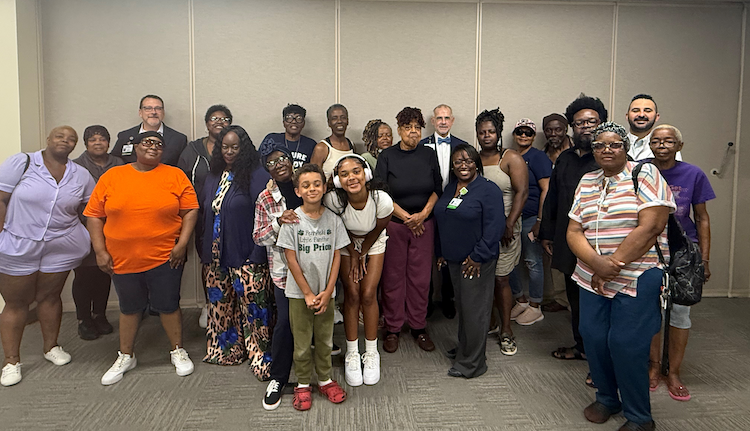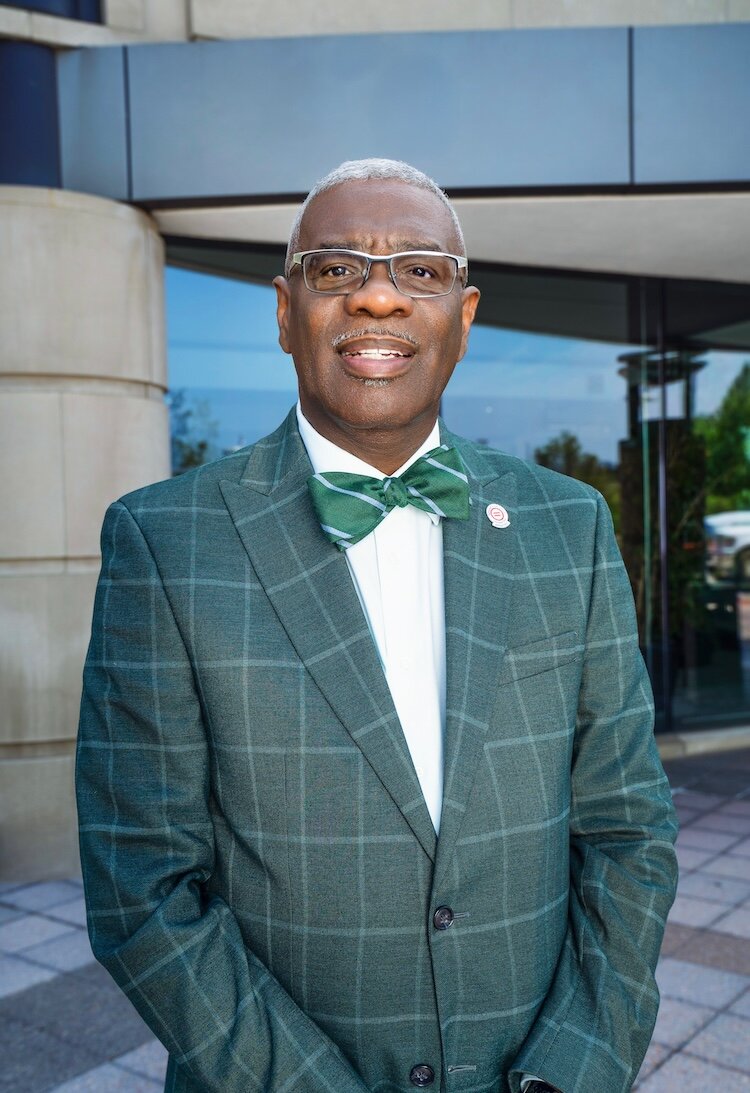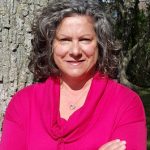Building trust, alleviating fear: A bold plan to transform Black healthcare in Battle Creek
Southwest Michigan Urban League is partnering with Bronson Battle Creek to launch health initiatives that expand access to care, wellness education, and financial resources. Priorities include promoting primary care, reducing barriers, and launching the “Afro Health Club” as a central hub for services and classes.
Getting your Trinity Audio player ready...
Editor’s note: This story is part of Southwest Michigan Second Wave’s On the Ground Battle Creek series.BATTLE CREEK, MI — Distrust in the healthcare system is stopping too many African Americans in Battle Creek from seeking preventative care for a whole host of health issues, says Michael Patton, MNA, President and CEO of the Southwestern Michigan Urban League (SWMUL).
During recent conversations with African American residents, especially those living in the 49037 and 49014 zip codes, which have the largest concentrations of Black residents, Patton says they told him that, “They see friends and neighbors who are going to the doctor and not returning home. That’s scary. There’s fear about how they’ve been treated or others have been treated, and that’s being shared in their community. We’re building care that addresses that concern.”
These discussions are part of ongoing conversations that will help to shape the framework for a partnership between SWMUL and Bronson Battle Creek to advance community health in the city’s African American community through education and initiatives that encourage proactive wellness and prevention, says a press release from both organizations.
The partnership is a critical piece of the strategic plan with a goal of becoming a hospital recognized for high quality and excellent patient experience, which will be the pride of Battle Creek, says Joe du Lac.
With guidance from du Lac, the hospital took a deep dive into patient experience and the flow and quality of service provided as a patient navigates the system. This included mapping the journey of patients from the time they arrive and are discharged from the Emergency Department as inpatients.
“We looked at every touchpoint of a patient and the quality of care they received and enhanced that and the speed of service,” du Lac says. “We’ve gone through some struggles in the last decade. Talking to community leaders and groups, including the Rotary Club, they weren’t saying anything bad, they just weren’t saying anything great.”

“This partnership with the Urban League is a natural fit and an opportunity for us to hear directly from them and work hand in hand with them to build a plan and identify objectives,” says du Lac.
SWMUL’s community health initiatives include creating easier pathways for regular check-ups, urgent care, wellness classes, and financial planning resources. Together, the organizations have identified key areas for improvement and plan to implement the following priorities: promote the importance of regular primary care visits; reduce barriers to care, including transportation, affordability and provider access; expand community-based wellness education and screenings; and launch the “Afro Health Club” — a hub for check-ups, urgent care services and classes on topics like budgeting, nutrition and healthy habits.
The hub will be located on the Bronson Battle Creek campus and staffed by physicians who will provide medical care, du Lac says, adding that this is among long-term plans with no start date set.

In the near term, the hospital will begin operating a weekly health clinic at SWMUL headquarters to offer screenings and will host a Health Fair in August.
“We’ve got to get our African American community familiar with general (healthcare) and how it works,” du Lac says. “We’ll invite them to our campus here and will offer health screenings, food, and music. Our providers will also be there so they can meet them and get to know Bronson.”
Building a relationship based on trust and mutual respect is critical to the success of the partnership. Patton says, “We’ve got to look at racism and other things come into play. The kind of healthcare that may have been provided over the years to underserved communities is not up to par.”
A 2022 report from the Pew Research Center says 51% of Black Americans say the U.S. health care system was designed to hold Black people back a great deal or a fair amount. Another 28% say it was designed to hold Black people back some, and 19% say not too much or not at all.
The report found mixed results in how Black adults assessed their experiences with health care. While nearly half (47%) said health outcomes for Black people have improved over the last 20 years, sizable minorities said they have stayed the same (31%) or gotten worse (20%).
And the majority of Black Americans (55%) said they have had negative experiences with doctors, including having to speak up to get proper care and feeling like the pain they were experiencing was not taken seriously.
Seed money to grow a partnership
A grant opportunity through the Michigan Health Endowment Fund (MHEF) laid the groundwork for the partnership. SWMUL is in the process of submitting information required by MHEF for a $150,000 grant. Patton says these will be startup dollars to grow the partnership, and additional philanthropic funding will be sought to address what SWMUL and Bronson see as a “huge concern and challenge in our community.”
“It will easily go into millions of dollars to address the health concerns, challenges, and gaps within our African American community,” he says. “Our hope is to be awarded the grant. If not, we’ll have to find some philanthropic dollars. We’ll do this work regardless.”
He expects to hear this month or in August about whether or not they’ll receive the grant.
The grant submission work is being done by Dr. L.E. Johnson, Chief Diversity Officer and Director of Engagement for SWMUL.
“L.E. has been at the forefront of this work. He saw the need and created a vision to address the health inequities in our community, which has been crying out for this,” Patton says. “Through the grant we’re applying for, we’ll partner and collaborate with Bronson to address chronic illnesses and create a cultural shift to preventative care.”
Diabetes, hypertension, and obesity are chronic illnesses that disproportionately impact African Americans, according to the National Institutes of Health (NIH).
A lack of preventative care often leads to complications from these diseases that negatively impact life expectancy rates for African American men, Patton says.
“The life expectancy rate for African American males is 72 while white males have a life expectancy rate of 78,” Patton says.
African American women have a life expectancy rate of 77. The rate for white women is 80, according to the NIH.
“The ultimate goal and what we’re trying to achieve is to extend the lives of those in the African American community here in Battle Creek and Calhoun County,” du Lac says. “We have one individual on the Urban League team who’s 96 and in great physical health. We’d like that to be the benchmark.”
If that benchmark is going to be a measure of success, he says, “We need to look at what the current situation is and what’s preventing this community from getting healthcare, like fear of the healthcare system and not understanding, fear of providers, and lack of transportation.
“We’ve started coming up with some objectives we actually do in the near term. This is going to have to be an ongoing partnership with the Urban League steering committee. We’ve just got to keep meeting and build his plan.”
The bottom line, Patton says, is that if people coming from underserved communities don’t have proper insurance and medical coverage, they’re not going to see a doctor consistently.
“They’re not going if they have to pay $500. People will utilize health services when they have coverage,” he says. “We have health deserts. We need to have health clinics our community can take advantage of and afford, that’s high quality without cutting costs or services.”
















